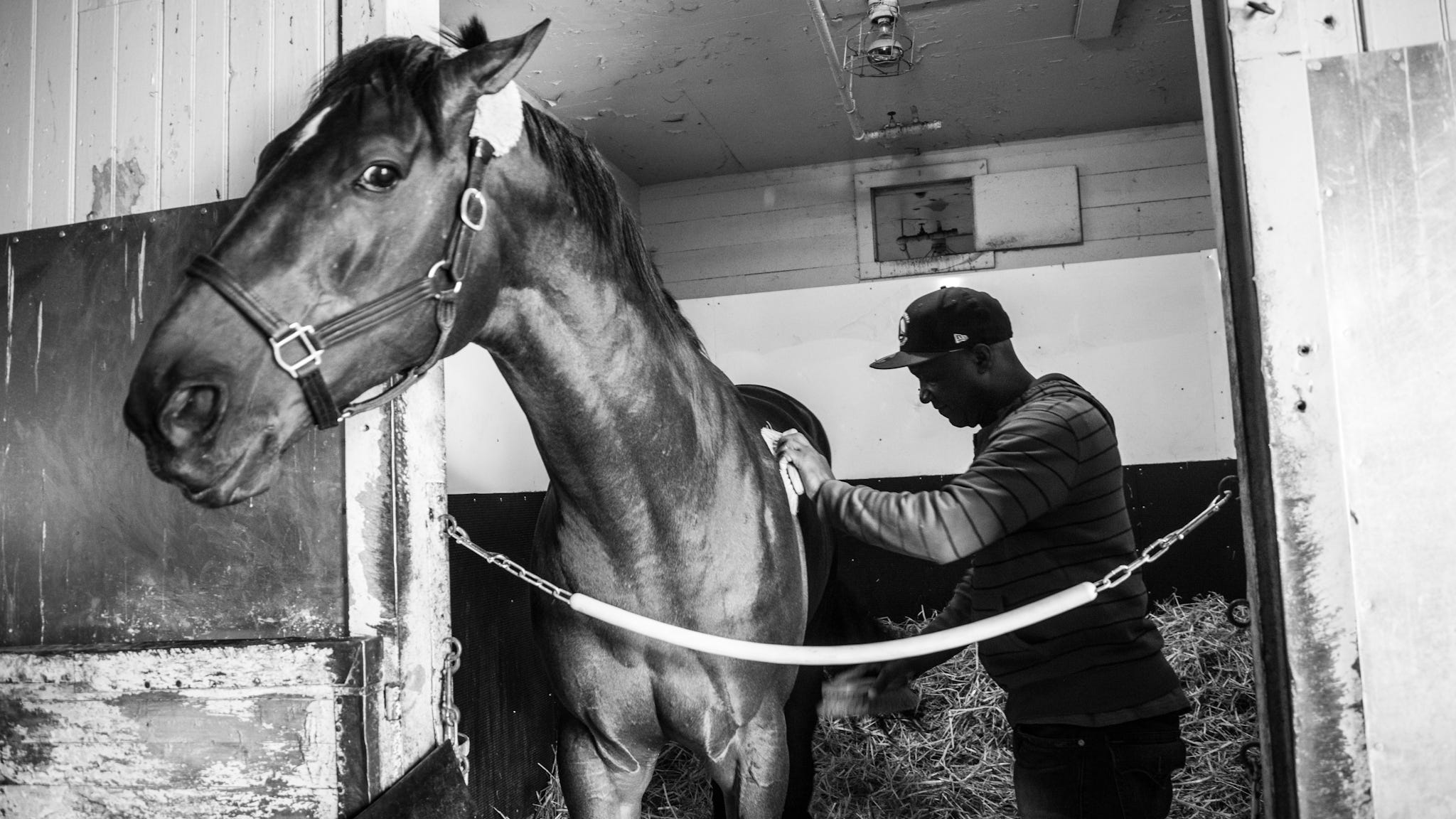How a Hard-Luck Horse and His Jamaican Trucker Owner Became Million-Dollar Champs
Meet Gaston Grant, one of the very few black owner-trainers in horseracing—and almost certainly the only one who also works full-time at UPS.

Photos by Lili Holzer-Glier
The bugle blows at the Aqueduct Racetrack in Queens, New York. The ordinarily sparsely populated bleachers are fuller than usual today. A small crowd of racehorse owners and their families gather in the paddock below the stands. Bottle blondes, here for the first time this season, wearing seven-inch platform heels and stretchy pastel dresses, shiver next to their balding husbands in the unseasonable April chill. Curious weed smoke from a small cluster of Jamaican men, dressed in white suits and Nikes, wafts over the crowd of seersucker and Barbour jackets waiting for the horses to arrive. They have all come to watch the biggest race of the day: the Wood Memorial, a qualifying run for the Kentucky Derby, and the last big race of the season at Aqueduct. But it will be the Carter Handicap – the race just preceding the main event – that provides the most excitement today.
Green Gratto, an unusually large thoroughbred, enters the paddock. Few notice the seven-year…
Keep reading with a 7-day free trial
Subscribe to Narratively to keep reading this post and get 7 days of free access to the full post archives.



